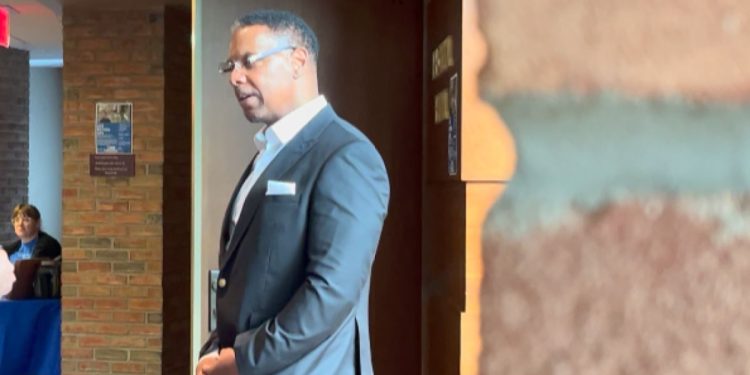On Thursday, Calvin University hosted three individuals who were once juvenile lifers, and they shared their personal stories.
As a youngster, Ronnie Waters takes full responsibility for his actions and admits his guilt.
During an interview with Fox 17, Waters revealed that he had committed a grave error in his youth, leading to the death of an innocent person. He further shared that he had been sentenced to life imprisonment without the chance of parole as a penalty for his actions.
The United States Supreme Court, in the case of Miller v. Alabama (2012), ruled that sentencing youths under the age of 17 to life terms without parole is unconstitutional. As a result of this ruling, these young offenders must be resentenced.
Waters shared that he has been dedicated to self-improvement by educating fellow offenders on reading and writing skills. He emphasized that he was fortunate to have received a second opportunity in 2020.
Addressing the audience, Waters expressed that having the opportunity to showcase that he is more than the worst mistake he ever made filled him with a sense of purpose and determination.
His mission is to spread optimism and healing, which he is actively pursuing.
Waters expressed remorse for his wrongdoing, stating, “I am sorry for my crime. I am striving to live a life that brings pride to everyone.”
Safe & Just Michigan advocates for giving other children a second chance at life.
John Cooper, Executive Director of Safe & Just Michigan, believes that everyone, especially children, can change and should be given a second opportunity.
Michigan is one of the few states that allow juveniles to receive life sentences without the possibility of parole. Waters notes that there seems to be a discrepancy between the state’s laws and the Supreme Court’s decision over a decade ago.
In a landmark decision, the United States Supreme Court has declared that it is unconstitutional to impose a life sentence without the possibility of parole for juveniles. This means that judges cannot make it mandatory for juveniles to receive such a sentence.
Instead, they must hold a hearing to reassess the case as the individual ages and becomes an adult. Judges are then given the discretion to decide whether a life sentence without parole is still appropriate for the individual in question, as explained by Waters.
Safe & Just Michigan recently hosted a debate at Calvin University, aiming to persist their movement of altering state laws.
Cooper posed a thought-provoking question, “Shouldn’t individuals who are still in the developmental stages while incarcerated re-evaluate their readiness for release into society once they become adults?” The statement made by Cooper encourages further contemplation on the topic at hand.
Michigan lawmakers are in the process of drafting new legislation to modify the state’s laws, which would create additional avenues for opportunities similar to those enjoyed by Waters.
During a press conference, Waters clarified that there was no intention to minimize the severity of crimes committed, nor was she advocating for leniency. “We are not advocating for slaps on the wrist or just to ignore the crimes that we commit,” she stated.
The committees of both the House and Senate have received the proposals, but the date of the vote is still unknown.



